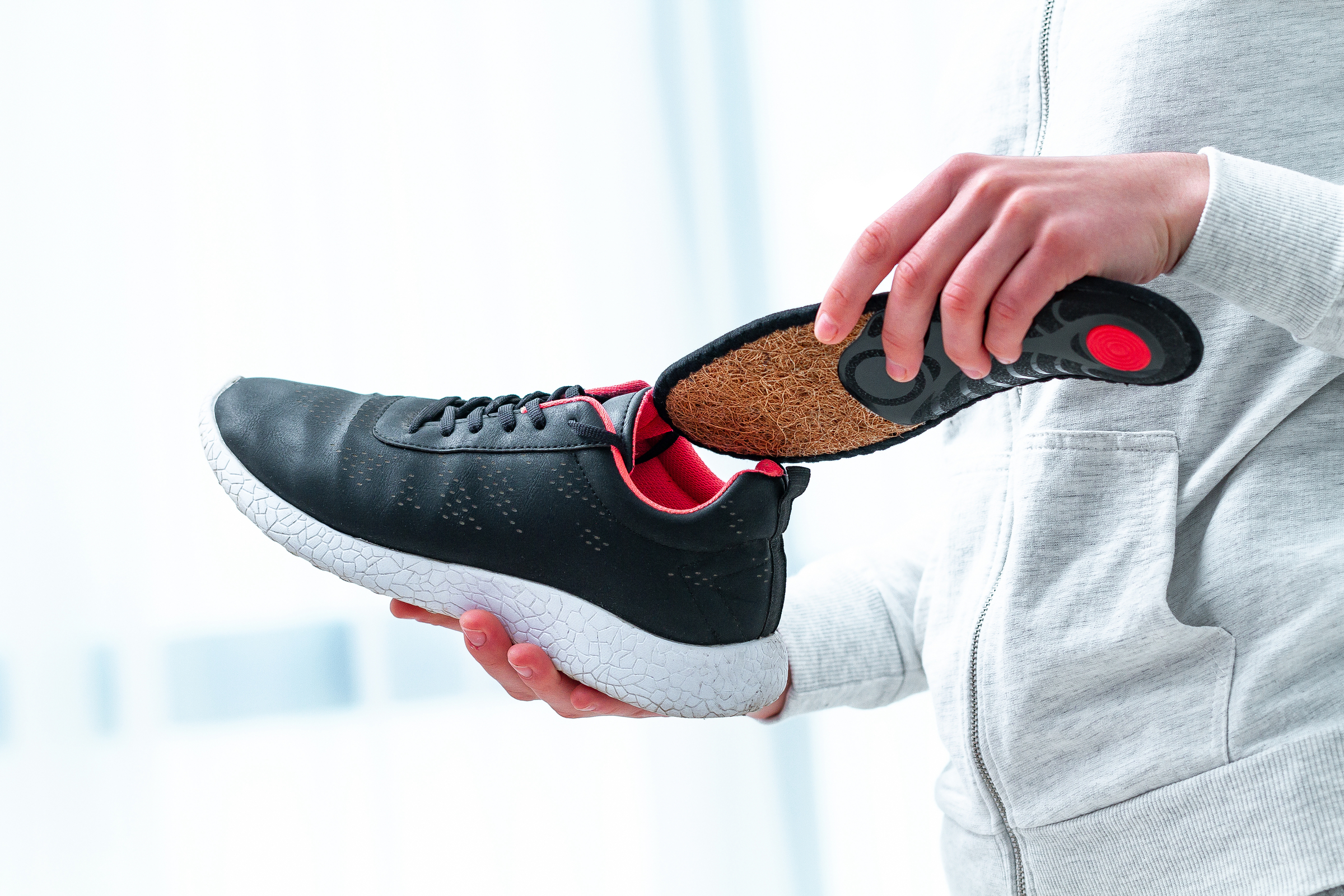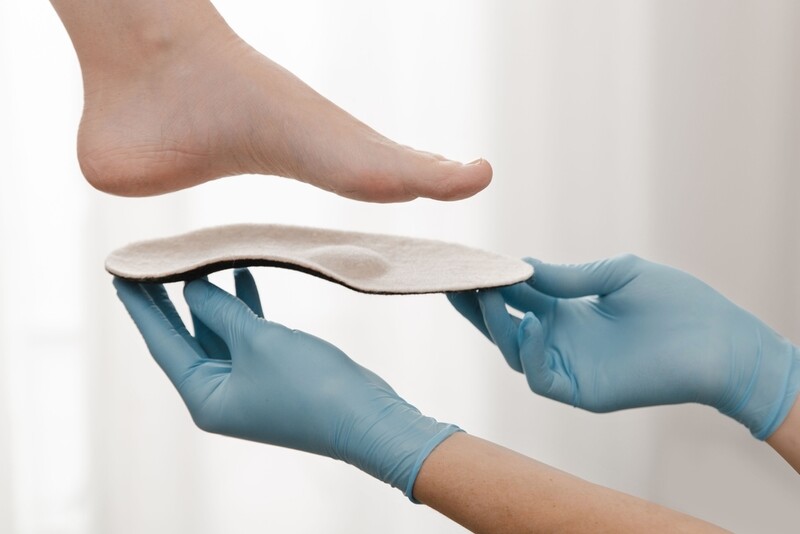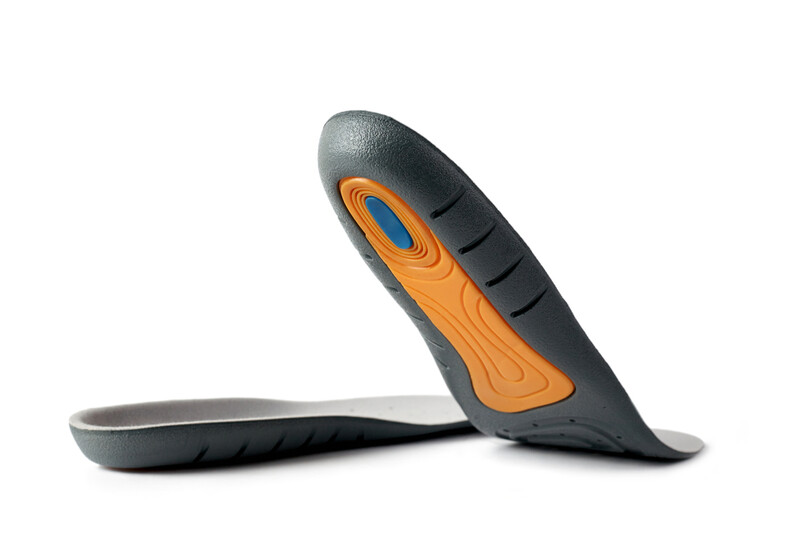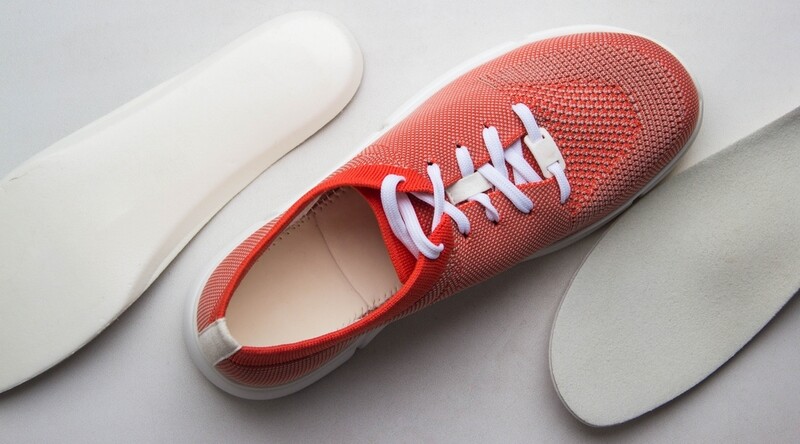
Shoe inserts tailored to your individual needs.
Malpositions of the foot can affect the entire posture and lead to complaints in the foot, knees, hips or back. Because of this, doctors and orthopaedists often prescribe orthopedic shoe inserts for the symptoms mentioned, although it is not obvious to the patient at first glance. Feet have to do a lot, they carry us through life and master every hurdle. Overloading in a job where you have to stand a lot or incorrect loading due to misalignments or anomalies of the feet can be counteracted with shoe inserts and those affected will soon feel an improvement in the symptoms and relief of pain. At Basler Orthopedics René Ruepp, we specialize in the adaptation and manufacture of shoe inserts for everyday use, for therapeutic purposes and also for sporting use.

Product Overview of Shoe Inserts.

Custom made insoles
Orthopedic shoe inserts from Basler Orthopedics
Healthy feet are a matter of course for most people and that's a good thing for me. Only when complaints arise, for example due to misalignment of the feet, wrong shoes or foot diseases, is it time to deal with the topic of shoe inserts. Most customers are then faced with the wide range of shoe insoles on the market and do not know which orthopedic insoles make the most sense for their specific complaints. It is important that the selected insoles help to alleviate the symptoms and, if possible, to regain unrestricted mobility. At Basel Orthopedic René Ruepp, we have been measuring and manufacturing orthopedic insoles for our customers with precision and craftsmanship since 1926. Using various techniques and measuring devices, we can create the perfect impression of your foot and create the appropriate and custom-made shoe insoles for you. We advise you in advance and conduct a personal conversation with you about the complaints you have and the later area of application of the shoe inserts to be created.

Orthopedic Shoe Inserts
Heel Spur & Sensorimotor Insoles
Custom-made insoles are available for a wide variety of applications. In principle, shoe inserts can be worn in any shoe. You can wear the shoe inserts in your normal everyday shoes as well as in your sports shoes and easily change them back and forth. However, a manufactured shoe insert can also be specially manufactured and adapted for a shoe. In the wide selection of shoe insoles there are heel spur insoles, sensorimotor insoles and sports insoles. To create a shoe insert, the orthopedic technician can take an impression of the foot using a footprint or a foot scanner. Particular stress points can be analyzed and visualized with a professional foot scan. A measurement of the foot is carried out and the foot pressure is determined at the same time. This diagnostic technique makes it possible to determine the exact values and to ensure a precise creation of the perfect shoe insole. The overall analysis also includes a comprehensive discussion and the examination of your feet and shoes.

Basel Orthopedic Shoe Inserts
The Different Types of Shoe Inserts
Shoe insoles can be divided according to the area of application but also according to the type of insole. Orthopedic insoles are individually manufactured by the orthopedic shoe technician and serve to support and cushion the bones and joints. Precise adjustment to the foot is important so that they improve muscle function, gait and general posture as effectively as possible. The materials most commonly used to create insoles are soft foam and soft padding, PU and EVA materials for foot deformities and children's insoles, and polyethylene for a supportive and shock-absorbing effect. If the legs are misaligned, the natural material cork or leather is also used. Another type of shoe inserts are sensorimotor shoe inserts. They have cushions that can be filled separately and can therefore be adapted to the exact needs of the patient. They strengthen the muscles in the foot and improve posture and movement coordination. At Basler Orthopädie René Ruepp, we use various tests to determine the exact values and optimal therapy for the optimal creation of sensorimotor insoles, so that you can soon benefit from improved muscular balance and postural damage can be corrected.

Questions & Answers about shoe inserts.
There are many different forms of shoe inserts made from many different materials, but in general shoe inserts can be divided into 3 categories. The most common shoe inserts prescribed by doctors are the support inserts, there are also the bedding inserts and the corrective inserts.
Before an individually adapted shoe insole can be created, it must be prescribed by a doctor or orthopedist. The exact values of the foot are then determined using various measuring techniques such as the 2D or 3D process or a footprint, after which the production of the insoles can only begin.
Shoe inserts are necessary when pain occurs due to a misalignment or overloading of the feet. These can cause problems far beyond the foot. A distinction is also made between an acquired malposition and a congenital malposition. Shoe inserts can also contribute to a great increase in comfort and prevent imminent pain due to misalignments.
Orthopedic shoe inserts are prescribed by a treating doctor or orthopedist when a diagnosis is made that can be traced back to a misalignment of the feet. Insoles can improve discomfort and relieve pain.
Specially made sensorimotor shoe inserts are created by orthopedic shoe technology. After a few months, the insoles should be checked and a decision made as to whether the medical effect is still fully guaranteed or whether the insoles need to be replaced.

Emergency service:
061 205 77 77
Mon - Fri 17:30 to 21:00
Sat - Sun 10:00 to 16:00
*The on-call service fee is CHF 150.
and is to be paid immediately on site.
Öffnungszeiten:
Monday to Friday:
08:00 - 12:00
13:30 - 17:30
Saturday closed
holiday opening hours 2026
23.02.2026 closed
02.04.2026 open until 4 p.m.
03.04.2026 closed
06.04.2026 closed
30.04.2026 open until 4 p.m.
01.05.2026 closed
13.05.2026 open until 4 p.m.
14.05.2026 closed
25.05.2026 closed
